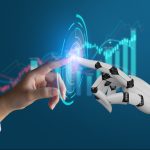Introduction
The twenty-first century has become a digital battlefield where technology, politics, and celebrity influence converge to shape the global narrative. Artificial intelligence and automation are revolutionizing industries, while politicians and cultural icons wield technology as a tool of persuasion and power.
In this age of connectivity, innovation no longer exists in isolation—it drives economies, redefines governance, and inspires activism. As the global tech boom accelerates, humanity must ask whether this transformation will unite or divide societies in the decades ahead.
Artificial Intelligence and Economic Transformation
Artificial intelligence has become the backbone of modern economies. From manufacturing to finance, AI-driven systems are enhancing productivity, predicting market behavior, and reducing costs. Nations investing heavily in automation are now reaping the rewards of faster growth and greater global competitiveness.
Yet, this economic transformation is not without challenges. Job displacement, ethical dilemmas, and unequal access to AI technology threaten to widen the gap between developed and developing nations. The race for innovation demands not only technological advancement but also social responsibility.
The Political Dimension of Technological Power
In global politics, technology has become both an asset and a weapon. Governments deploy AI for surveillance, cybersecurity, and national defense, while also using digital tools to shape public opinion. The control of data has become the new form of political leverage.
However, this power raises questions about transparency and human rights. As digital governance expands, societies must ensure that technology serves democracy rather than undermining it. Balancing security and privacy has emerged as one of the greatest political challenges of the modern era.
Celebrity Influence in the Digital Age
Celebrities have adapted to this technological transformation by becoming digital activists and entrepreneurs. Through social media platforms, they amplify messages about global issues ranging from climate change to social justice, influencing millions in real time.
Figures like Elon Musk, who bridges celebrity and innovation, demonstrate how fame and technology can coexist as forces of transformation. In this interconnected world, the line between entertainment, technology, and leadership continues to blur.
AI in Media and Communication
Artificial intelligence is reshaping journalism and mass communication. Automated systems can now write articles, analyze trends, and detect misinformation faster than humans. This has redefined how news is produced and consumed across the world.
However, while AI increases efficiency, it also poses risks of bias and manipulation. The need for transparency in algorithmic decision-making is more urgent than ever to preserve the integrity of public information.
Technology and Environmental Responsibility
Innovation is not only driving economic growth but also offering hope for environmental recovery. Tech companies are investing in renewable energy, sustainable materials, and AI-driven environmental monitoring. These efforts are helping track deforestation, reduce waste, and predict climate patterns.
Yet, the same technology that saves the planet also consumes immense energy. The balance between progress and preservation will determine whether the tech boom leads to sustainability or further ecological strain.
The Rise of Digital Diplomacy
Technology has transformed diplomacy into a faster, more connected process. World leaders use social media and digital platforms to communicate directly with global audiences, bypassing traditional channels of diplomacy.
Digital diplomacy allows nations to build relationships, promote transparency, and respond rapidly to crises. However, it also increases the risk of misinformation and conflict escalation when words spread faster than verification.
FAQs
How is AI changing global economics?
AI enhances productivity, reduces costs, and enables smarter decision-making, helping nations achieve faster and more efficient economic growth.
Why is technology so influential in politics today?
Technology gives governments powerful tools for communication, surveillance, and policy management, but it also raises issues of privacy and ethics.
How do celebrities use technology for influence?
Celebrities use digital platforms to promote awareness, launch campaigns, and connect with audiences worldwide, merging fame with advocacy.
What are the environmental benefits of new technologies?
Renewable energy, AI monitoring, and green manufacturing reduce emissions and improve the management of natural resources.
What challenges does AI bring to journalism?
While AI improves speed and accuracy, it also risks spreading biased or misleading information without human oversight.
Conclusion
The global tech boom has created a world where AI, politics, and celebrity influence converge to define the future. Each element drives the other forward in a cycle of innovation and adaptation that shapes culture, governance, and progress.
As technology continues to evolve, humanity faces the task of steering it toward collective benefit rather than individual gain. The challenge is to create a digital future rooted in transparency, fairness, and sustainability—one where power and innovation coexist in balance for generations to come.



